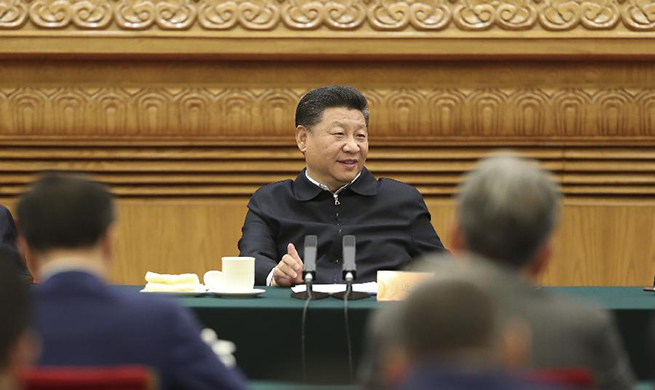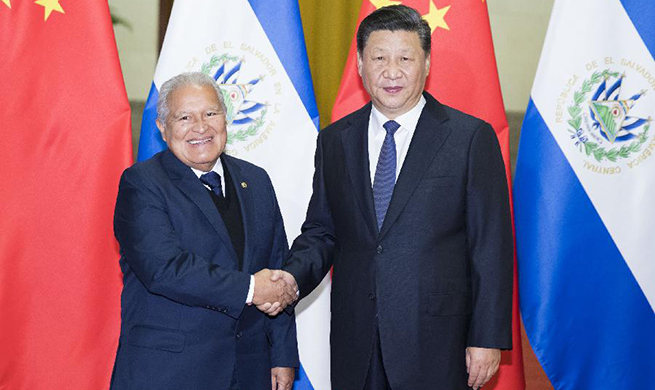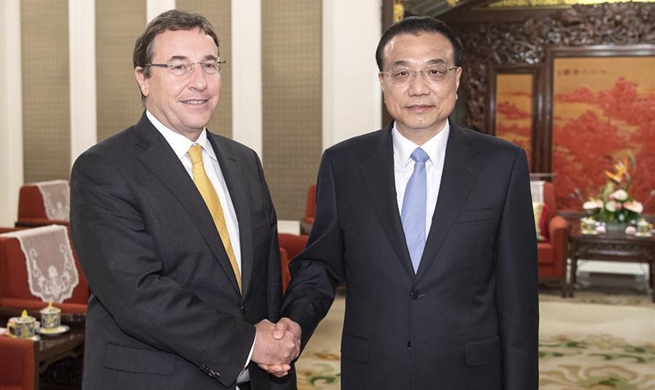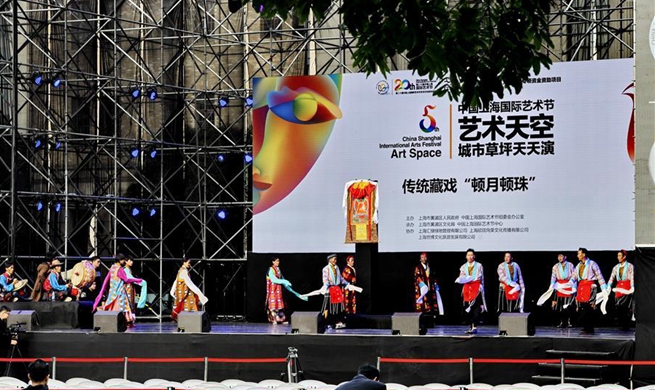TOKYO, Nov. 2 (Xinhua) -- The Japanese government approved a bill on Friday to revise the immigration control law to allow more foreign workers to undertake work in a variety of sectors.
The move comes as the nation grapples with a serious labor crunch caused by its rapidly aging and shrinking society.
Due to the rapidly graying population and declining birthrate, the bill, which was approved by the Cabinet on Friday, will allow eligible foreign workers to apply for newly-created visas spanning a variety of sectors from agriculture and construction, to daycare and nursing.
"Labor shortages are starting to become a major factor hampering economic growth. We will create a proper system," Prime Minister Shinzo Abe was quoted as saying at a parliamentary committee on Friday.
The bill has indicated a significant shift in Japan's previous tight restrictions for foreign workers entering and working in Japan and the change in policy on foreign labor has been met with some reservations by opposition parties who have voiced concern about the shift in Japan's famously cautious immigration stance.
The Japanese market, however, under current severe labor conditions, is in dire need of more foreign laborers, experts here attested.
Under the proposed legislation, the first status will allow five-year working visas to foreigners with applicable vocational skills in certain fields, but they will not be allowed to bring their families.
For foreign workers eligible for the second status, who have more advanced skills, the length of their stay will be open-ended and they will be allowed to bring their families with them.
Japan's top government spokesperson, Chief Cabinet Secretary Yoshihide Suga, told a press conference on the matter Friday that foreigners coming to work in Japan will be treated equally to their Japanese peers and be made to feel comfortable living and working in Japan.
"We want to create a country where foreigners feel that they want to live and work," Suga said.
The government and the ruling coalition are aiming to begin deliberations on the bill next Thursday with Abe keen to see it enacted by the end of the Diet session.
Opposition parties, however, have warned that the bill is lacking in detail and should not be rushed through parliament and into law.
Japan's largest labor organization Rengo on Friday, also voiced caution, saying there should be "thorough" debate in the Diet as the immigration shift would have "a major social impact."
Rengo, known officially as the Japanese Trade Union Confederation, also said it is imperative that the government first ensure the rights of foreign workers already working in Japan before widening the doors of immigration.
It pointed to some cases in Japan where foreign trainees have been forced to work exceedingly long hours, work under dangerous conditions and in roles they were not expecting and have suffered other such work-related abuses.












